
to Hive being
welcome
What is Hive Being, and Why the Name?
You have likely heard talk of a hive mind, where one global mind finds more or less figurative expression in various local minds. Such talk is common enough in nature documentaries, especially ones concerning ants or bees, and in sci-fi programs. Take that notion, at least a loose version of it, and broaden its scope. That will be a decent first step in understanding the title I have chosen both for my Blog and for the first five-volume installment of my magnum opus Made For You and Me, a fragmentary collection of minimalist stanzas from 2016 to 2020.
In alignment with Spinoza (the 17th Century Rationalist to whom I devoted my doctoral studies), I view reality in its totality as a grand hive Being: all entities are but pulsating manifestations of the buckstopping fount of everything, an ultimate being we might call “God” or “Nature” (so long as, out of respect for the capital “G” and the capital “N,” we limit it neither to some anthropomorphic cloud father hurling lightning bolts nor to mere wilderness untouched by human smog). According to the hive-Being view (where reality is one lone superorganism, a monistic—and we might even say unividualist—conception I defend in both my creative and academic capacities), each non-foundational being (each being, that is, whose essence does not involve existence) is an utterly necessitated expression or eruption or exudation of this eternal source—each is, perhaps better put, a mode or manner of being, and so a focal point through which is disclosed, what classical theists sometimes call “being itself” (ipsum esse subsistens): the realness of the real, the being of whatever may be, the sheer activity of being, the very isness of whatever is. This Blog, which duplicates my Substack, throbs as but one among many literary unfurlings of this self-necessitated foundation, this supreme wellspring, of which we—like black holes and broken beliefs, like fractal ferns and flickering flames—are the inevitable stylings.
My Journey
I am an academic who found himself pressured into early retirement by the rising tides of cancel culture. The illiberal scourge of censoring, silencing, and shaming—although always with us throughout our evolution—reached a local peak around 2021. That was the turbulent year my creative pursuits, which the old left once encouraged as a healthy outlet for the stresses of a childhood steeped in poverty and illiteracy, drew the ire of the new safe-space left. A small cadre of self-proclaimed victims and their allies, several of whom continue to berate me years later under pseudonyms as see through as their sexual infatuation, sought to erase me and my heterodoxy. They found support from a wannabe-woke dean, covered in the grand inquisitor robes of our decadent modernity (full-body tattoos) and just itching to signal his commitment to protecting “vulnerable populations” from triggering material (even if just, as it was in my case, off-duty poems “unbecoming for someone calling himself a teacher”). Although I eventually won my due-process case with the help of The Foundation for Individual Rights and Expression, I slunk away from a college that turned its back on protecting freedom of expression and from an institution increasingly intolerant of intellectual diversity.
The wrecking ball to my too-comfy office in the windowless ivory tower came with a silver lining. From the ashes of my professional aspirations rose a phoenix of increased freedom to fulfill the literary calling I have pursued for decades. Reputation concerns never stopped me, even within academia’s sterile halls of conformity. Indeed, my unapologetic defiance, which has long baffled friends and family, no doubt chummed even safe waters—almost as if I were asking for it all along—until the cancel shiver grew too frenzied to hold back its blind thrashings. But now, now I piston the most forbidden territories of human thought with no longer even a twinge of conscience. The newfound freedom means extra time to hone my craft. When not assisting special-needs communities (a day job far more rewarding than freeway-flyer drudgeries), I pursue my literary mission with Dionysian fervor.
Call for Co-Conspirators
This space, my digital sanctuary, showcases the fruits of my mission. Think of my posts, even those linking to my publications, as works in progress. I want your input, unflinching brutality included. Each post begins with an invitation to action: “Let’s workshop this [draft about x, y, z].” Your contributions, whether through public comments or my contact page, help hammer scraps of ore into polished blades fit for magazine publication.
Your input is valuable, even if you are neither a writer nor a reader of literature—twin disciplines dying by the cyber nanosecond. Sometimes—even if at the risk of uttering banalities—an outsider’s fresh vantage can pierce the veils of convention to reveal what insiders miss. It often takes an outsider to make us even think to question our ingrained presuppositions and attitudes. I stand by the hygienic value of contagion. That is one reason I advocate so strongly for intellectual diversity and freedom of expression. And that is also one reason I was so harrowed by the anti-diversity swell of cancel culture in academia (an institution that should be the utmost caretaker of such values)—harrowed especially insofar as that swell masqueraded under the gaslighting guise of “diversity”).
You will witness the breathing evolution of my writings over time. To track these changes, I label each revision by round: “ROUND 2,” ROUND 3,” and so forth. Each piece undergoes continuous refinement based on your feedback and my own revisitations. Sometimes changes will mar the work. That is the risk of creative tinkering as a finite creature. I hope you will alert me to missteps. After many semesters of university writing workshops, one rule has impressed itself upon me: when someone senses a flaw, something almost always needs to change—even if, yes, the proposed solution misses the mark (which often it does). From a quick look into the archives, accessible here, you can see how much I have benefited from your feedback so far.
My Hope
Sharing drafts can be daunting. But showing you the ravaged and unperfumed real deal unfiltered by makeup (stuttering starts and falsities, awkward line breaks and clumsy word choices, grammatical errors and misspellings)—that not only makes my work more relatable, but helps me refine things through your input. I hope the unfiltered look at the raw process of fumbling, rather than just the polished product, also helps other writers develop their craft. Imperfect works often instruct more than perfect ones: whereas the perfect ones tend to have a grace by which they slip inside us without activating our scrutiny, the imperfect ones—especially the near perfect ones—show us glaringly what not to do.
People laugh at me, seeing—in my tilting at the windmills of literary excellence—a Don Quixote clunking around in Arthurian armor in a post-knight era. I am not naïve. I am well aware of the diminishing ability to read, let alone well: slowly and deeply, with gratitude. I am also aware that my style, which often nests subpoints within larger points, never waters down virtuosity for the sake of mass appeal. I watch readers stumble over my sentences, unable to unlock even just the music of the envelope let alone the semantic meat within, which—given my tendency to flashlight through the darker facets of human nature (the addicts, the miscreants, the abusers among us)—only adds an additional alienating layer of difficulty). Beholding these depressive scenes of even supportive family members getting bucked off my syntactic bronco makes me feel like a dinosaur who should get a hint and, if not succumb to the brain rot of skibidi-toilet speak, just hang himself already. Even though the decline in linguistic background and grammatical voltage makes my compositions seem quixotic in a world binging Netflix and TikTok, I persist—raging against the dying of the light—by some internal compulsion to celebrate the richness of language and thought.
My hope is that, despite social media’s unparalleled power to farm our attention, people never forget the unique power of writing. Beyond unveiling hypocrisy, teasing out complex implications, and detailing the commonalities between even the most alien phenomena, writing offers something we need today—trapped in agoraphobic cyber bubbles only thickened by the Lyme dangers of forests and the COVID dangers of cities—perhaps more than ever. Granting us rich access to the first-person perspectives of others (to how things feel to them), writing serves as one of humanity’s best tools for combating loneliness. It allows us to linger, broadly and deeply and at high resolution, within the inner lives of others in a way that other arts can only suggest.
What to Expect
My work spans a broad spectrum: from metaphysical discourses on free will and determinism and the ontology of holes to the ephemera of western culture (whether the childhood impacts of the hypersexual mono-image of black woman as squirting twerkers or Terrence Howard’s sham revolution of mathematics). Some tight and minimal, others free-flowing sprawls; some heady and abstract, others emotional and imagistic—my inkwell musings, which often blend scholarly rigor with a dark humor from both high and low culture, aim to capture the visceral intensity of our personal and social and ultimately existential predicaments.
By no means can I deny that drug abuse, sexual assault, and the tales of the broken and the damned loom large in the tag cloud of my work. My writing will never be a paradise of easy truths and comforting lies. It will challenge you, provoke you, and at times even repulse you. I offer no apologies for the monsters I unleash. They are as much a part of us, at long root scared rodent mammals scurrying in the shadows of dinosaurs, as our noblest aspirations.
But make no mistake. It is not all downer darkness. The archives are my receipts. You will find pieces exploring the pursuit of authenticity in a media-saturated world, the search for meaning in an indifferent cosmos, and the celebration of beauty in both the sublime and the profane. I locate much of my inspiration, in fact, in novelists like Dostoevsky and poets like Ted Kooser—writers unafraid to pursue moral agendas or risk Hallmark sentimentality in an age that often sneers at sincerity.
Be they satirical dissections of modern social dynamics or poignant poems about addiction or academic articles on moral responsibility, my goal is to provoke thought, evoke emotion, and foster meaningful dialogue. Fear has not and will not stop me from challenging humanity’s fundamental taboos (like bestiality and cannibalism) or self-reflecting into the dark chaos of the subconscious, even if that means exposing the Jungian shadows—the inner Goebbels—lurking within us all!
Expect posts each day, no day missed. Donations are welcome, but I impose no paywall: it feels wrong to charge for art, especially given our date with obliteration. Feel free to explore what amounts to, at the time of writing this, close to a thousand pieces of poetry and prose here. That should give you a sense of what awaits.
Join me—specula holstered—on this literary odyssey into the public and private nooks of the hive Being. Let us navigate the labyrinth of creation together, confronting our demons and even slaying our darlings if we must. Let us dance on the razor’s edge between the sublime and the profane in pursuit of an elusive literary perfection never to be confused—as it has been confused in our declining civilization—with the pursuit of popularity or likeability over truth.
tag cloud
- poetry
- literature
- literature community
- poem
- literary
- American literature
- writing
- creative writing
- poetry community
- Michael Istvan
- Istvan
- perception
- defiance
- suffering
- existential poetry
- dissociative
- poet
- existential
- healing
- human
- sex
- adolescence
- power
- art
- artist
- campus warrior
- mortality
- Nietzsche
- evolution
- substance abuse
- God
- death
- darwin
- sensual
- Earth
- resilience
- hardship
- love
- anxiety
- Life affirming
- parenthood
- murder
- meditation
- sexuality
- crack
- prison
- parenting
- disease
- love letters
- vines
- christianity
- junkies
- religion
- faith
- rape
- hoodlum
- teen
- worship
- thugs
- Biggie
- islam
- hypocrisy
- muslims
- babies
- pound town
- feet
- baby feet
- taboo
- care
- cops
- olympics
- blm
- woke
- horse
- dread
- dysmorphia
- psychoanalysis
- homosexual
- gymnastics
- abuse
- mental health
- repression
- hypermasculine
- teacher
- poison
- transgressive
- fatherhood
- father
- suicide
- drugs
- social justice warrior
- poverty
- philosophy
- plastic surgery
- addiction
- music
- artistry
- asian
- handjob
- teens
Posts

Mario Mangione
Mario Mangione is a vast, psychosexual-ontological autopsy of American culture in its most performatively liberated yet ideologically punitive mode. Structured as a feverish confessional-critique hybrid, the work mounts a scathing and relentless inquiry into the contradictions of our current sexual-cultural regime—a world where grotesque hypersexuality is aestheticized, monetized, and algorithmically disseminated, while those who merely reflect or satirize this spectacle, especially from the “wrong” positionality (white, male, heterosexual), are castigated or even expunged.
This work is not merely transgressive—it is diagnostic, functioning as a paranoid yet philosophically credible case study of what happens when Enlightenment categories of autonomy, erotic freedom, and identity collapse into each other under late-stage neoliberalism. Through Mario, the protagonist (and perhaps stand-in for the author), we encounter a tragic consciousness formed in the crucible of both working-class male dispossession and elite academic training, where the tools of critique—Freud, Derrida, Foucault, Žižek, DFW—are weaponized against both others and the self in a desperate attempt to regain footing in a cultural ecology defined by algorithmic virality and ever-shifting norms of offense.
Sex here is not merely the topic; it is the ontological condition. The text posits eros as both evolutionary inheritance and hypermediated spectacle, where libido—once sublimated into religious awe, artistic refinement, or interpersonal sublimity—is now unmoored and mutating into commodity, status marker, political gesture, and threat. It is a world in which twerking, OnlyFans, Cardi B, drag brunch, and gang-rape porn bleed indistinguishably into one affective saturation—while linguistic or artistic gestures that describe, parody, or merely process these phenomena are policed with hypocritical zeal.
The piece rigorously critiques the Orwellian semiotics of progressivism, where words like “diversity,” “empowerment,” and “safety” become euphemisms for censorship and scapegoating. In this landscape, Mario’s persecution becomes both farcical and archetypal: he is the white-male Other made object of cultural catharsis, sacrificed to maintain a therapeutic simulacrum of justice. His academic excommunication for “inappropriate content” is revealed as a political ritual—staged by the very same institutions and individuals who propagate the most exploitative forms of hypersexual content under the banners of empowerment or artistic legitimacy.
At its most daring, the work advances a Nietzschean diagnosis: that our culture's “liberatory” embrace of sex is not emancipation but decadence; not a radical openness to embodiment, but a simulated carnival concealing a death-drive, a self-annihilating despair masquerading as liberation. Yet the narrator resists conservative nostalgia or religious authoritarianism. If anything, the voice oscillates between libertine and ascetic, unable to resolve its metaphysical vertigo, yet equally unable to lie.
Philosophically, Mario Mangione touches on nearly every major concern of postmodern thought: the implosion of the public/private divide; the return of the sacred in the profane; the death of grand narratives; and the impossibility of stable subjectivity in a mediatized, performative society. What makes it singular, however, is its refusal to signal any obvious political allegiance. Neither anti-woke screed nor liberal self-flagellation, it seeks instead to stand at the edge of the event horizon and describe the gravity’s pull.
Stylistically, the prose channels a range of high-density traditions: the paratactic surrealism of Céline, the hyperanalytic narratology of David Foster Wallace, the grotesque satire of Rabelais, the tragic confession of Dostoevsky. The rhetorical speed, vulgarity, and syntactic saturation serve not as ornament but as atmosphere: we are inside the fevered mind of a man unraveling. The density is deliberate, a mimetic enactment of the cultural condition it critiques: overstimulated, exhausted, drenched in libidinal detritus.
If Mario is a pervert, he is the pervert produced by the system—the pervert who reflects its logic too clearly. And if his art repulses, it may be because it renders the unconscious of our culture legible. It may be, in fact, that Mario Mangione is among the few works of our time willing to drag that unconscious into the surgical light without either sanitizing or sermonizing it.
A sweeping, incendiary cultural critique in the form of a confessional monologue, Mario Mangione confronts the sexual hypocrisy of the contemporary West with surgical philosophical precision, unflinching prose, and transgressive daring. Both a document of personal collapse and a polemical portrait of civilizational rot.
hypersexuality, censorship, scapegoating, free speech, white masculinity, Nietzschean critique, post-liberalism, sexual politics, cultural studies, psychoanalysis, David Foster Wallace, trauma, eros and death drive, academic hypocrisy, digital spectacle, identitarianism, postmodern ethics

MADE FOR YOU AND ME 2: hive Being (Stanzas 2017--part 51)
This mosaic of poetic fragments functions as a prismatic rendering of post-industrial psychic life, combining ontological vertigo, sensory immediacy, and sociocultural critique into a fugue of epistemic disquiet. The speaker, fractally dispersed across each entry, occupies a consciousness both micro and macro—at once nosing into the mousetrap’s anatomical gore and surveying civilization’s macro-theatrical collapse. Recurring throughout is the tension between perception and performance, where even in death (“posturing for others even during / the last moments of death”) the self is filtered through an imagined other’s gaze. The refusal of closure—both formal and philosophical—aligns this piece with post-structuralist epistemologies, which posit knowledge as always already deferred, partial, and contaminated by positionality.
Several fragments pose ontological questions via aesthetic proxies: “to depict the effects of x / on flesh... is to depict x itself” asserts a metonymic faith in representation, while the Bacon reference (“on weed we open to see ourselves / as the Bacon figures that we are”) embeds a phenomenological claim about altered perception and its ontic revelatory power. Both allusions suggest that the grotesque, in its rawest form, may offer less distortion than lucidity. Others, like “eloquence covering ignorance” or “sadness in the passing of even the saddest phase,” stage philosophical irony—lamenting the human capacity for verbal ingenuity as camouflage for existential bewilderment.
The fragment “we were not crazy / for having multiple voices inside / until the dawn of monotheism” points to a genealogical critique in the Foucauldian sense: that our current model of the unified, sovereign subject is historically contingent, not metaphysically necessary. In this light, the poem interrogates how dominant epistemes shape inner life, and how what counts as sanity, divinity, or even identity is deeply time-bound.
Fragments like “power saws killing bird song” and “scented crevices and passageways / whose call to future generations / no extermination spray can eradicate” entwine ecological grief with intergenerational continuity, staging a melancholic resistance to both industrial sterilization and extinction. The speaker notes the sublime in decay, the agency in vermin, the dignity in homelessness (“the charity of a joint, or a bottle, passed among the homeless”), consistently unsettling normative hierarchies of beauty, civility, and survival.
Temporal dislocation appears too, most notably in “vague swathes of time, such as those / where it is unclear whether one can joke / about the tragedy or about one’s period being late,” which holds together grief and banality with surgical precision. This ambivalence toward mourning—personal or collective—repeats elsewhere in the child’s unresolved bewilderment (“no words for the child’s response of ‘But you said it would be okay’”), a fragment that wounds more deeply through its refusal to emote.
Taken together, the mosaic advances a poetics of witness and disintegration, where even humor—especially humor—is a symptom of dislocation. Rather than scaffolding meaning from the fragments, the speaker offers exposure: of image, of moment, of scar. In that exposure lies not resolution, but a form of honest attunement.
Meta Description:
A densely layered mosaic of existential, aesthetic, and cultural observations that probes the grotesque, the tragicomic, and the absurd with surgical precision and philosophical rigor.
Keywords:
fragment poetics, existential phenomenology, post-structuralism, ecological grief, perception and performance, ontological critique, monotheism and subjectivity, surveillance gaze, trauma temporality, Baconian figuration, poetic aphorism, cultural decay, affective dissonance, surreal materiality, disintegrated selfhood.
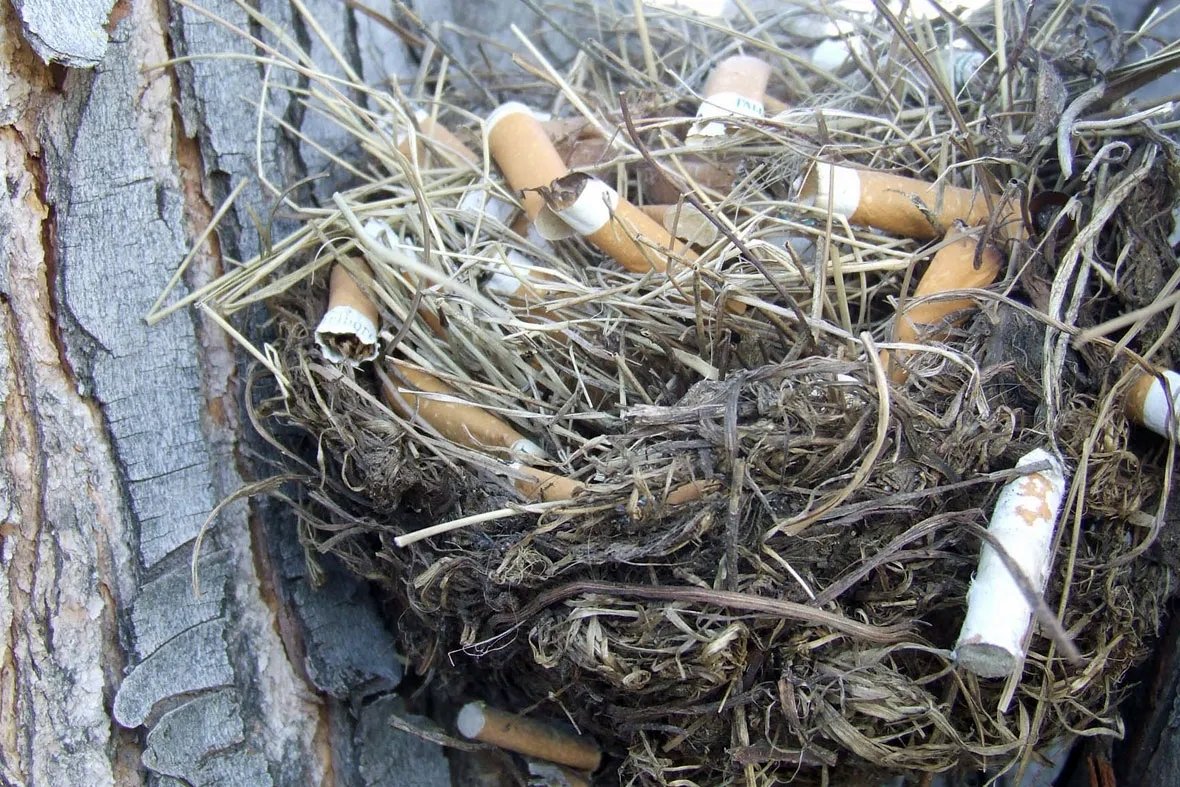
MADE FOR YOU AND ME 2: hive Being (Stanzas 2017--part 50)
This mosaic of aphoristic fragments weaves together a fractured but thematically coherent exploration of psychological paradox, cultural critique, social absurdity, and existential unease. The tone oscillates between satirical and mournful, sketching an ecosystem of moments that resist cohesion but nevertheless resonate across shared anxieties. Much like a mental scrapbook of dark epiphanies or notecards from a late-night writing binge, the speaker captures flashes of insight—some poignant, some perverse, many suspended in irony.
The fragment “the second suicide attempt has rendered the first no longer laugh-worthy” sets the tone for the destabilizing honesty that pervades the text. Several entries revisit the subject of suicide, addiction, and mental illness—not as polished narratives but as subtextual residue of the human attempt to find equilibrium in the absurd. Similarly, “the raw reality, that you are an addict, clearest to you while high,” strips recovery discourse of its usual optimism and instead reveals the acute awareness that sometimes emerges mid-spiral.
Social alienation recurs throughout, from “isolated from others because of questions they pose” to “still angry, going on four decades now, that he falls under six foot”—the fragments confront the reader with the persistence of childhood shame, unhealed bruises, and adult defenses. Gender, sexuality, and performative identity are also critiqued with a subtle ferocity: “why is it that when a guy comes out as gay he must… take on that swagger… of a black girl from Atlanta?” and “first fake breasts became default—and now autotune?” suggest that identity and aesthetic performance increasingly merge in bizarre, consumer-driven symbiosis.
A current of anthropological and environmental observation pulses through lines like “nonhumans crafting their innermost sanctums... out of our cigarette-butt trash” and “landmines detonating here and there long after human extinction.” The speaker seems as interested in the long view—the patterns and recursive dysfunctions of civilization—as in private anguish. But even this is treated with suspicion: “whether from denial, hope, a need to birth—art production still runs rampant in the face of collapse.”
The fragment form invites close reading and slow digestion. Rather than issuing a thesis, it holds up a dark mirror to the reader’s own associative habits and moral blind spots. The result is a kind of “negative theology” of contemporary consciousness—a theology that doesn’t propose salvation but instead records its absence with brutal fidelity.
Meta Description:
A mosaic of aphoristic fragments reflecting on psychological instability, cultural performance, commodified identity, and existential fatigue. Bleak, ironic, and startlingly lucid.
Keywords:
aphoristic poetry, fragment mosaic, addiction, suicide, alienation, cultural critique, gender performance, late capitalism, identity commodification, environmental decay, psychological realism, postmodern despair.

Mirror Firewall
"Mirror Firewall" probes the psychology of dissociation and projection in the context of addiction and homelessness. The speaker, themselves a user, experiences a moment of internal rupture: despite being only “several blocks” from their own habitual post, they mutter a dehumanizing phrase—“‘nother / damn hobo”—at another figure marked by similar degradation. The poem enacts what psychoanalysis might call a split defense: by outwardly expressing disdain toward someone recognizably like himself, the speaker erects a psychic “firewall,” protecting against the horror of self-recognition. The mirror here is not literal but symbolic—a refracted image of his future or present—held at bay through contempt.
The title underscores this defensive architecture. A “firewall” (in computing or metaphor) blocks unwanted intrusion. Here, it fends off the painful acknowledgment of sameness. The intrusion that threatens the speaker is not physical but existential—his vision of the other man swings “left-right” in his peripheral awareness, making the threat of identification feel like a looming hallucination, “dream distance” on the cusp of collapse.
The enjambments and spacing mimic the mental disjunction: flinching perception, disavowed empathy, and survivalist contempt. In suggesting that one’s most hateful projections are often directed at what most closely resembles the self (a fact too painful to own consciously), the poem reveals the emotional and perceptual mechanics that maintain identity under conditions of shame and collapse.
Meta Description:
"Mirror Firewall" examines the dissociative mechanisms of addiction and homelessness, capturing how contempt for others can function as a psychological defense against self-recognition and collapse.
Keywords:
addiction, projection, homelessness, identity defense, psychoanalysis, late-capitalist urban despair, self-other split, contempt as defense, mirror trauma, crack use, poetic dissociation.

Suburbia's Tasteless PTA Potluck
“Suburbia’s Tasteless PTA Potluck” is a terse and stinging critique of a particular strain of performative allyship within contemporary liberal culture—specifically the phenomenon of parents who derive a sense of personal cachet from having a transgender child. The poem’s imagery and tonal choices suggest a corrosive satire, one aimed at the commodification of identity politics in affluent, culturally insulated enclaves. At only nine lines, the poem reads with the sharpened brevity of a satirical epigram, exposing how symbolic capital, particularly around race and gender, is cynically leveraged for social clout.
The poem’s first tercet centers on a child whose insistence on gender identity (“I’m not a boy!”) is presented not through the lens of their own struggle but through a characterization dripping with contempt: “Veruca Salt egomania.” The allusion to Veruca Salt—the spoiled, petulant character from Charlie and the Chocolate Factory—instantly frames the child as emblematic of unchecked entitlement, echoing a growing cultural suspicion that youth identity declarations are increasingly encouraged, not challenged, by a parental generation eager for progressive credibility.
But the sharper critique, and the true object of the poem’s ire, lies in the subsequent stanzas—namely the mother, who is said to cite her child’s transgender identity not for reasons of parental love or advocacy but for how it “added ‘seasonin’’” to her “‘bleachy-white life.’” Here, the tone slides into biting caricature: the affectation of African-American Vernacular English in the word “seasonin’” implicates the speaker in a mockery of cultural appropriation, suggesting the mother’s eagerness to don “unprivileged” identities as fashionable accessories. The use of “bleachy-white” conjures both the sterility and the cluelessness of affluent suburban whiteness—a cultural monoculture now seeking its own edgy redemption via proxy victimhood.
What’s more, the phrase “street cred / in unprivileged communities” distills the poem’s central accusation: that the child’s identity has become a kind of social seasoning, a garnish to spice up an otherwise bland cultural existence. The crassness of this transactional framing mirrors the very title’s metaphor: a “tasteless PTA potluck,” in which the supposedly diverse offerings of identity and experience are reduced to bland, self-congratulatory kitsch. “Potluck” here does double duty: first as the suburban community ritual often associated with inoffensive socialization, and second as an ironic nod to how identity categories are treated as optional dishes brought for the aesthetic enjoyment of the white liberal elite.
The poem, then, does not satirize transgender identity itself, but rather the instrumentalization of such identity by parents (especially white, affluent mothers) whose desire for moral capital and progressive social currency exceeds their interest in the deeper ethical or emotional realities of the identities they claim to champion. The poem invites discomfort precisely because it operates at the razor’s edge of cultural critique, implicating both the commodifying liberal parent and the social structures that reward such commodification. In this sense, it joins a growing chorus of literary works interrogating how even social justice discourse can become a vehicle for self-serving egoism.
Meta Description:
This sharp and satirical poem critiques performative liberal parenting, exposing how some affluent white parents instrumentalize their transgender children for social cachet and symbolic “seasoning” in the politics of identity.
Keywords:
performative allyship, identity politics, satire, suburban liberalism, trans commodification, Veruca Salt, cultural appropriation, social capital, white progressivism, parent-child dynamics,

Contrarian Influencer
"Contrarian Influencer" operates as an incisive exploration of the complex interplay between consumer psychology, corporate manipulation, and the performative structures of authenticity within late-stage capitalism. By embedding its critique within the specialized world of luxury perfume connoisseurship—a niche that prides itself on discernment and aesthetic purity—the poem reveals how even the most resistant subcultures can be deftly co-opted through strategic rhetorical maneuvers. The imagined scenario of a perfume house employing a contrarian influencer as a Trojan horse—tasked first with discrediting the brand before later delivering an unexpected endorsement—foregrounds the capitalist system’s capacity to appropriate dissent and convert it into capital. The influencer, initially cast as an uncompromising critic, becomes an unwitting or complicit agent in a long-con strategy that preys on the psychological dynamics of trust, exclusivity, and the desire for authenticity.
At its core, the poem scrutinizes the mechanisms by which late capitalism not only anticipates but actively engineers countercultural resistance into its profit calculus. The contrarian influencer, who builds his credibility through years of scathing critiques, exemplifies how subcultural capital—here, the aesthetic expertise and critical rigor within niche fragrance communities—can be transformed into a highly valuable commodity. This phenomenon mirrors broader trends in consumer culture, where authenticity itself becomes a performative act, stripped of its subversive potential and repackaged as another consumable product. The house’s ability to eventually "convert" the influencer is less a testament to the quality of its product and more a demonstration of its mastery over the logics of market infiltration and consumer psychology.
The poem’s critique is sharpened by its meticulous attention to the semiotics of niche perfume discourse. The deployment of insider terminology—"choya loban," "ambergris drydown," "real oakmoss"—not only lends verisimilitude but underscores how specialized language can function both as a gatekeeping mechanism and as a tool for manipulation. The influencer’s performative enthusiasm, couched in the language of olfactory connoisseurship, becomes the very vector through which the house reasserts its market dominance. This dynamic speaks to a deeper epistemological question within consumer cultures: how can authenticity be discerned in a system that has perfected the art of its simulation?
"Contrarian Influencer" also interrogates the ethical dimensions of aesthetic experience in a hypercommodified world. It exposes the dissonance between the aspirational narratives of artisanal purity and the capitalist imperatives that undergird even the most seemingly independent producers. In doing so, the poem situates itself within a broader critique of late-capitalist cultural production, wherein the boundaries between art and commerce, dissent and complicity, become increasingly porous. The result is a sophisticated meditation on how taste, authenticity, and cultural capital are not merely personal expressions but deeply embedded within systems of power and economic incentive.
Meta Description:
"Contrarian Influencer" offers a critical examination of consumer psychology, market manipulation, and the commodification of authenticity within late capitalism, using the niche world of luxury perfume as a lens to explore how dissent is co-opted into profit-driven strategies.
Keywords:
consumer psychology, capitalist critique, cultural commodification, influencer dynamics, niche perfume industry, authenticity in marketing, hyperreality, aesthetic subcultures, market manipulation, late-stage capitalism
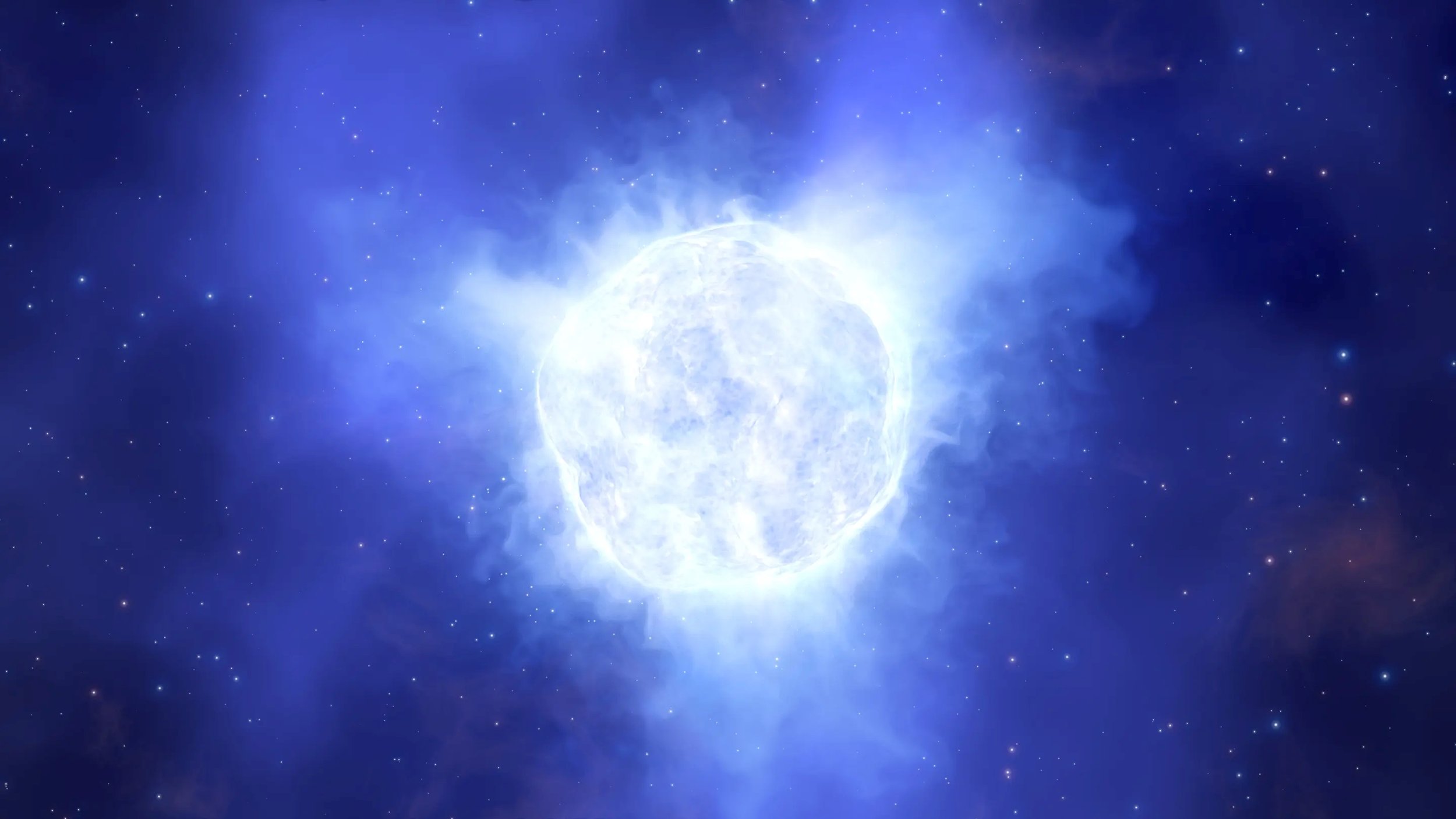
MADE FOR YOU AND ME 2: hive Being (Stanzas 2017--part 49)
This collection of poetic fragments presents a kaleidoscope of existential themes, moral quandaries, and sensory experiences, woven together with a keen sensitivity to the human condition. The fragments explore a wide range of emotions and reflections, from guilt's inability to alter the past yet anxiety's power to shape the future, to meditations on solitude and the nature of inner dialogue, whether directed at oneself, God, or the echoes of great thinkers. The recurring motif of death, both as obsession and as a weakening preoccupation with age, adds a haunting undercurrent to the reflections on life’s fleeting joys, such as the softened resonance of singing in a shower or the awe inspired by starlight.
Some fragments examine societal constructs, such as the commodification of female empowerment through hypersexualized displays like twerking, juxtaposed against deeper yearnings for authenticity and connection. The moral complexities of modern life are also foregrounded, from the dilemma of a drug dealer refusing to sell to known overdose victims to the self-conscious paralysis of potential lovers afraid to pursue intimacy. These pieces interrogate the human capacity for self-deception, as in the ability to rationalize rage or find meaning in nihilism, while also celebrating the beauty of small, universal moments—the reverb of a cathedral, the tickle of eyelashes, or the stark wonder of the night sky.
The fragments engage with weighty philosophical questions: Is declaring one’s love of life an act of hope or genuine contentment? How does an awareness of mortality shape human generosity, creativity, and relationships? The tension between bodily and cosmic scales emerges in striking contrasts, from pole dancers' athleticism to the immensity of being star-stuff. Meanwhile, the sensory world—whether through the echolocation of blind humans or the silence in a music performance that amplifies ambient sound—grounds these abstractions in tactile immediacy. Together, these fragments are a compelling meditation on human fragility, resilience, and the persistent search for meaning amidst chaos.
existentialism, mortality, solitude, guilt, anxiety, sensory experience, inner dialogue, commodification, female empowerment, death, starlight, reverb, cosmic wonder, moral dilemmas, self-deception, pole dancers, echolocation, cathedral silence.

Deflection from the Existential Stakes
"Deflection from the Existential Stakes" critiques the philosophical tendency to shift discussions of free will into historical or conceptual abstractions while neglecting the core existential implications. The poem begins by referencing Spinoza’s rejection of free will, framing it not as a timeless philosophical insight but as a critique tied to specific cultural and historical constructs—capitalism, private property, and Christianity’s confessional practices. These systems, the poem implies, shaped and codified notions of individual autonomy in ways that may not align with the metaphysical "truth" of free will. However, the poem challenges attempts to dismiss Spinoza’s critique by reframing free will as a historically contingent idea. Such deflections, while academically sophisticated, fail to address the existential stakes: whether our actions are genuinely "up to us." The poem highlights the futility of linguistic or conceptual maneuvers in mitigating the practical implications of determinism, a reality that remains unaltered by intellectual reconfigurations. The closing lines suggest that the essential question of autonomy and agency cannot be dissolved into word games, no matter how complex the discourse around them.
Spinoza, free will, determinism, existentialism, agency, autonomy, capitalism, private property, confession booths, historical constructs, philosophical critique.

MADE FOR YOU AND ME 2: hive Being (Stanzas 2017--part 48)
The thematic fragments provided delve into the interwoven complexity of existential musings, societal critiques, and the profound human experiences that tether skepticism and wonder to the frailty of belief, identity, and mortality. Anchored in poetic intensity, these lines suggest a deep confrontation with the mechanics of history, individual autonomy, and the paradoxical human condition. They weave a tapestry where fleeting phenomena, such as "evanescent whale prints on the ocean surface" or "sunset sunspots, spoiling the perfection," coexist with enduring dilemmas like the search for purpose and the relationship between skepticism and faith.
The fragments traverse moral and historical critique, as seen in "the risk of suicide in chasing out burrowed contagion," evoking past tragedies like the Jewish expulsions and broader human tendencies toward destructive purges. They equally probe cultural dogmas, highlighted in "religious clerics, please update the kosher and halal list," where faith intersects with the evolution of knowledge. The critique of authority and systemic control is underlined in "detained for speaking a verboten language," underscoring the fragile balance between power and resistance in linguistic and cultural expression.
Existential themes recur throughout, with a preoccupation for memory, death, and the self. "Suicide postponed through writing about it" and "dead parents fully present in your head" evoke the unrelenting presence of grief and the ways humans attempt to process the void left by loss. Meanwhile, "faith that you fear to lose deserves less than the title ‘faith’" questions the strength of belief tethered to fear, offering a philosophical critique of how we define and sustain spiritual conviction.
Other fragments explore the potential alienation from societal norms and structures. "Breaking robots to preserve jobs" critiques the contradictions inherent in technological progress and human labor. "His only angle into at least a fragment of friendship" illustrates the often-painful negotiations of belonging and identity. Collectively, these lines highlight how human fragility and resilience manifest in both interpersonal and collective spheres, where the search for meaning frequently clashes with external realities.
The collection oscillates between sweeping cosmic perspectives, as in "silicon children of biologics throughout the universe," and intimate moments like "the flag’s hoist wire clinging against the metal pole in an ominous wind," drawing a connection between the vastness of existence and the minutiae of everyday life. Ultimately, this kaleidoscopic arrangement captures the profound paradoxes of human existence—our vulnerability, resilience, and enduring thirst for understanding in the face of both cosmic and personal obscurities.
existentialism, societal critique, belief, memory, mortality, identity, skepticism, faith, grief, cosmic perspective, human condition, technological progress, cultural dogmas, existential paradoxes, poetic intensity.

MADE FOR YOU AND ME 2: hive Being (Stanzas 2017--part 47)
The list of poetic fragments provided serves as a kaleidoscopic meditation on themes of existential dread, moral contradictions, and the profound absurdities of human life. Each vignette probes different dimensions of human experience, ranging from the deeply personal to the broadly societal. Central to the collection is an unflinching willingness to confront topics often relegated to the shadows—death, addiction, sexual violence, and the fraught nature of faith and belief—while maintaining a tone that oscillates between sardonic wit and bleak profundity.
Some entries, such as "doing the math on the mortality of loved ones" and "despite having shaped their very beings... you fear the oblivion of even loved ones soon enough living their lives as if you have never been", address the inescapable anxiety of mortality and legacy, exploring how the inevitability of death ripples through human relationships and self-perception. Others, like "nothing comes from nothing, but something comes from your doing nothing" and "robust diversity, that of viewpoint, prevents parochialism", reflect on the interplay of action, inaction, and intellectual openness in shaping human progress.
Recurring throughout is the notion of humanity’s simultaneous smallness and audacity. "It would be so poetic to glorify humans as a rupture in the cosmic indifference, but there is anti-indifference all around" challenges anthropocentric narratives, grounding human uniqueness within a broader continuum of natural phenomena. Similarly, "proving flat earth would be much too hard to resist for almost any career scientist" highlights the paradoxical human tendency to crave both truth and fame, often at the expense of one for the other.
The fragments also critique societal hypocrisies and cultural phenomena with sharp precision. "excessive smiling means nervousness with chimps (as still with us)" reflects on the primal underpinnings of behavior, while "robust diversity, that of viewpoint, prevents parochialism" critiques contemporary identity politics and intellectual stagnation under the guise of progressivism. These critiques are both timely and timeless, resonating across cultural and historical contexts.
Altogether, the list forms a fragmented, nonlinear narrative that mirrors the chaotic, contradictory, and deeply layered nature of human existence. Each fragment is a thread in a tapestry that invites readers to confront uncomfortable truths, wrestle with paradoxes, and ultimately reflect on what it means to live, believe, and belong in a world rife with ambiguity.
existential dread, mortality, belief, societal critique, human absurdity, paradoxes, identity politics, cultural phenomena, human nature, existentialism, morality, faith, addiction, absurdity of life.

Anti-Boy-George Psychomechanics
“Anti-Boy-George Psychomechanics" is a visceral exploration of the inner turmoil, societal pressures, and self-perpetuating cycles of identity reconstruction experienced by a transgender individual navigating a hostile cultural landscape. The poem examines the protagonist's "cutter discomfort," a profound dysphoria intensified by their acute awareness of external judgment and their own efforts to create a socially acceptable feminine persona. This discomfort, rooted in both personal and societal rejection, serves as a dual-edged catalyst: it propels the protagonist to lean into their transformation while also deepening their rage against systemic structures of "whiteness and its liveliest arm (the anti-trans arm)." The conflation of personal dysphoria with systemic oppression amplifies the protagonist's sense of victimhood, transforming their physical and emotional struggles into symbolic resistance against a perceived "nightmarish reign."
The poem's detailed catalog of transformative tools—epilators, wigs, voice-training manuals, breast-plumping serums, and gender-affirming accessories—underscores the commodification of identity within capitalist frameworks, even as it highlights the protagonist's reliance on these products to construct a semblance of safety and validation. The irony of purchasing these items through platforms like Amazon, which the protagonist associates with systemic oppression, reflects the contradictions inherent in navigating an identity that is both deeply personal and deeply politicized.
The protagonist's meticulous efforts to erase traces of their "birth-family boyhood" and curate an online identity steeped in exaggerated femininity evoke themes of erasure, performance, and the external validation sought in a world perceived as inherently hostile. The poem critiques the societal structures and internalized ideals that compel such relentless self-editing, as well as the paradox that these efforts often deepen the very dysphoria they aim to alleviate. The "cutter discomfort" that permeates the poem becomes a symbol not only of gender dysphoria but of the broader existential anguish of trying to reconcile an authentic self within a framework that demands conformity to conflicting ideals.
Ultimately, the poem navigates the intersection of personal identity, societal expectations, and systemic oppression with an unflinching gaze, offering a poignant meditation on the costs—both emotional and existential—of self-creation in a world that often resists it.
gender dysphoria, transgender identity, societal pressure, systemic oppression, commodification of identity, online persona, anti-trans violence, self-construction, performance of femininity, identity politics.

What Einstein Got Wrong
“What Einstein Got Wrong" explores the interplay of trust, skepticism, and ambition within the scientific community, positioning scientists as deserving of trust not merely because of their rigorous training but also because of their inherent aspirations to challenge established paradigms. The poem juxtaposes the meticulous discipline and aspirations of scientists with the chaotic accusations of conspiracy theorists, represented here by the caricature of "spectersniffer71@aol.com." Through this contrast, the poem underscores the paradox of scientific ambition: while scientists, like any humans, harbor personal ambitions—"dream superstardom dreams about toppling paradigms"—their aspirations align with the pursuit of truth, as opposed to the anarchic distrust embodied by renegades who lash out at science with "mean grammar-mangled missives."
The poem offers a nuanced critique of skepticism that veers into cynicism, portraying conspiracy theorists as more concerned with creating chaos than with advancing knowledge. Yet it also subtly acknowledges the allure of overturning accepted frameworks, a motivation shared by both scientists and their detractors. The difference lies in the method: scientists adhere to rigorous, evidence-based processes, whereas the rogue accusers operate on suspicion, poorly constructed arguments, and emotional impulse. The poem thus suggests that while the scientific endeavor is not free of ego or ambition, it is fundamentally structured to reward genuine breakthroughs that withstand scrutiny, as opposed to the unsubstantiated claims of its critics.
scientific skepticism, conspiracy theories, scientific ambition, paradigm shifts, trust in science, pseudoscience critique, rigorous inquiry, ambition vs. chaos, Einstein critique, scientific discipline.

Supernatural Nullity
"Supernatural Nullity" examines the conceptual incoherence of supernaturalism by addressing the logical implausibility of a realm beyond nature—a stratum ontologically distinct from the full expanse of all that is, in principle, intelligible through reason. The poem’s critique centers on the idea that the only conceivable "sensible" hope for the existence of such a supernatural domain lies in the emergence of a being from "absolute nothing." However, this suggestion collapses under scrutiny, as the very stratum in question—supernature—dissolves into "nothing" itself. This collapse underscores the poem’s central assertion: the notion of supernature fails to withstand logical examination, reducing the concept to an untenable abstraction.
The poem navigates this tension with philosophical precision, refusing to present the being that arises from nothing as inherently supernatural. Instead, it interrogates the stratum itself, suggesting that if supernature’s truth rests on such emergence, the supernatural realm is fundamentally indistinguishable from absolute nothingness. The logical resolution is not a validation of supernaturalism but its nullification, where the "nothing" posited as the foundation of supernature also renders it void of ontological significance.
By grounding its critique in rigorous logical analysis, the poem invites readers to confront the human yearning for a domain beyond the material and comprehensible. It suggests that this yearning—while profoundly human—is mired in paradox when confronted with the constraints of logos. As such, Supernatural Nullity positions itself as a meditation on the limits of metaphysical speculation, challenging readers to reconsider the coherence of their assumptions about transcendence and existence.
supernaturalism, supernature, metaphysical critique, ontological collapse, transcendence, nature vs. supernature, logical analysis, philosophical poetry, human yearning, conceptual incoherence.
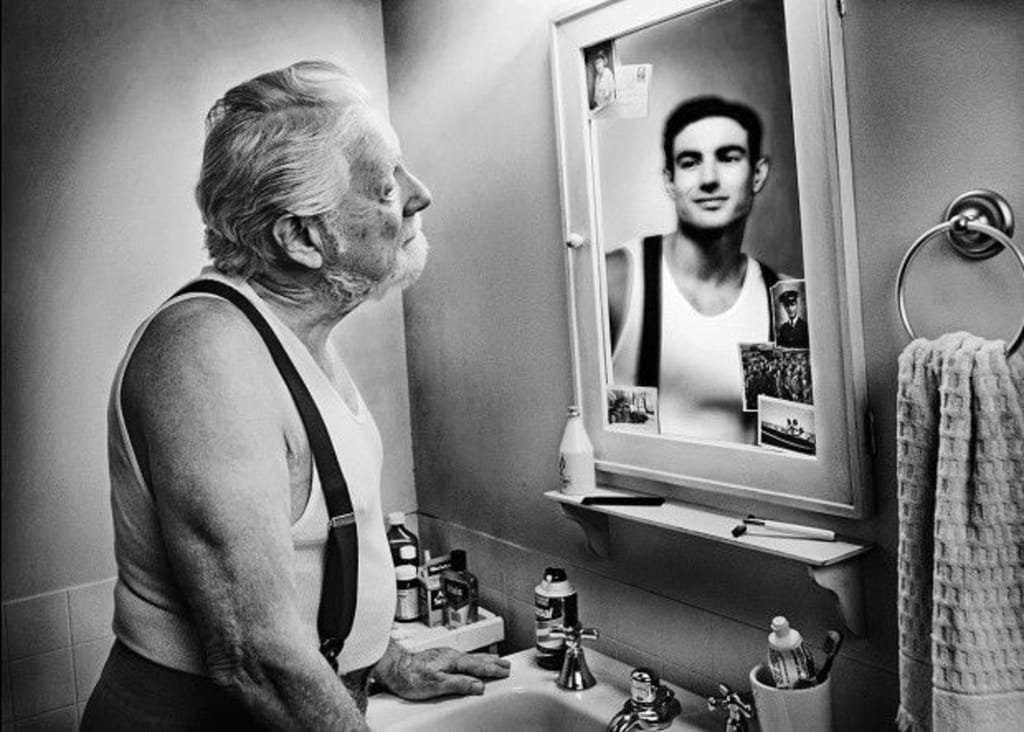
Communion with Temporal Echoes
"Communion with Temporal Echoes" explores the human capacity for self-reflection and the interconnection between past, present, and future selves. The poem uses the metaphor of speaking to oneself across time to suggest that, while there may be no literal time loops, the echoes of our actions, thoughts, and emotional states reverberate through our lives and influence others. This interplay of temporalities hints at the profound potential of self-awareness and intentionality in shaping not only one’s own journey but also the experiences of those around us.
The opening lines establish the premise of addressing oneself "across time," introducing the concept of a metaphysical dialogue that transcends linear temporality. The gray attic specter—a haunting yet intimate figure—serves as a poignant symbol of the self’s foresight and hindsight. The specific example of the specter intoning reassurance before a devastating moment, such as receiving divorce papers, underscores the tension between comfort and inevitability. This image encapsulates the paradox of time: our inability to alter the past or predict the future, yet our enduring desire to provide solace and clarity to our fractured selves.
The poem shifts from the hypothetical “loop” of literal time travel to a more grounded reflection on the subtle, embodied ways we interact with time. The "traces of such reach," manifesting in posture and gait, point to the unconscious ways our past experiences shape our physical and emotional presence in the world. This embodiment of temporal echoes suggests that self-compassion and reflection can ripple outward, influencing others who might recognize their own struggles or vulnerabilities in these gestures.
By framing self-dialogue as a source of potential uplift for others, the poem extends its scope beyond individual introspection. It implies a communal dimension to the act of engaging with one’s temporal echoes. The concept of lifting "those in need" positions self-awareness not merely as a personal endeavor but as an act of quiet altruism, where the healing or understanding of one’s own life can inspire and comfort others.
Ultimately, "Communion with Temporal Echoes" is a meditation on the interplay of time, memory, and human connection. It invites readers to consider the ways their own experiences and self-perceptions might ripple across their lives and into the lives of others, transforming personal introspection into a shared legacy of resilience and hope.
temporal echoes, self-dialogue, introspection, time loop, human connection, memory, embodied experience, resilience, self-awareness, personal growth, metaphysical reflection, shared legacy, past and future selves.

Cognitive Arms Race
"Cognitive Arms Race" examines the evolutionary trajectory of curiosity, positioning it as both a catalyst for human advancement and a source of existential struggle. The poem draws on Darwinian principles to explore how cognitive evolution, while rooted in practical survival needs, spiraled into an insatiable quest for knowledge that ultimately transcended its original function. This "snowball momentum" of curiosity becomes a defining feature of humanity, distinguishing us from our primate relatives while burdening us with an acute awareness of the void.
The opening lines juxtapose the chimpanzee's sufficient cognitive capacity for survival with the human brain's relentless expansion. This contrast suggests that the human branch of evolution was propelled by forces beyond mere utility—curiosity driving ever-greater cognitive complexity. The "snowball momentum" metaphor vividly captures the compounding effect of intellectual exploration, where each discovery generates further questions, propelling humanity beyond the pragmatic and into the metaphysical.
The poem’s pivot to "escape velocity" introduces a critical tension: the very cognitive growth that allowed humans to surpass survival-oriented thinking also exposed them to profound existential uncertainty. This tension is embodied in the "void," a metaphor for the vast, unknowable aspects of existence that only a self-aware species could confront. The "headiness of metaphysical proportion" required to cope with this void underscores the double-edged nature of human curiosity—it is both the engine of progress and the source of existential dread.
Ultimately, "Cognitive Arms Race" reflects on the paradox of human intelligence: our cognitive evolution, while enabling unparalleled achievements, has also led to an awareness of questions too vast to answer fully. The poem situates humanity’s quest for meaning within the broader evolutionary narrative, highlighting how the same trait that elevates us also defines our deepest struggles.
curiosity, cognitive evolution, Darwinian principles, human intelligence, metaphysical awareness, survival, existential struggle, escape velocity, evolutionary trajectory, cognitive complexity, human uniqueness, evolutionary paradox, quest for meaning.

Moana Script
"Moana Script" is a meditation on cultural appropriation and its deeper existential implications, addressing the human tendency to obscure uncomfortable truths through moral outrage. The poem critiques the reactive deflection seen in accusations of appropriation, suggesting that such responses mask a more unsettling realization about human agency and creativity. It situates humanity as both ingeniously adaptive and profoundly interconnected, drawing attention to the tension between individuality and universal causality.
The opening lines frame the backlash against appropriation as a form of denial, redirecting attention away from a foundational truth about human existence: that all thought and action are ultimately derivative. The image of humans as "star-faring critters" emphasizes the species’ remarkable adaptability and ingenuity, while the comparison to a Swiss Army knife, self-modified for survival, underscores the resourcefulness required to navigate existential traps.
The poem’s pivot to causality deepens its philosophical scope. By asserting that "not one scintilla of motion, thought, bottoms out causally within us," the speaker challenges the notion of individual authorship, highlighting the inherent interdependence of human expression. This insight dismantles the illusion of ownership—whether of culture, ideas, or actions—suggesting that all human activity arises from a network of inherited influences and external forces.
Ultimately, "Moana Script" engages with the paradox of human creativity: while we pride ourselves on originality and autonomy, our every motion and thought is embedded in a web of causality that extends beyond individual control. The poem invites readers to confront this truth, not as a path to despair, but as an opportunity for a more honest and interconnected understanding of humanity’s place in the cosmos.
cultural appropriation, human agency, causality, interdependence, originality, human creativity, existential truth, adaptability, interconnectedness, philosophical critique, individual authorship, star-faring, Swiss Army knife metaphor, universal causality.

The Repudiation of Reality Beneath the Cry of Appropriation
“The Repudiation of Reality Beneath the Cry of Appropriation" interrogates the performative outrage over cultural appropriation and its underlying contradictions. The poem highlights the human fixation on being recognized as the originator of cultural artifacts—jokes, slang, films, music—despite the transitory and derivative nature of such contributions. It critiques the selective memory inherent in these demands, emphasizing that even those outraged often fail to remember the broader web of influences that shaped their own expressions.
The opening lines acknowledge the lasting impact of cultural contributions, pointing out their continued appreciation and utility. However, the poem sharply pivots to question the insistence on being acknowledged as the source, presenting it as a flawed pursuit rooted in ego rather than genuine understanding. The speaker juxtaposes the persistence of cultural artifacts with the fragility of memory, suggesting that the cry for credit disregards the inevitability of cultural evolution and collective forgetting.
The invocation of "trauma still felt" adds a layer of nuance, recognizing the pain and historical injustices that underpin many discussions of appropriation. However, the poem reframes this pain as a bracketing device, arguing that it is used to justify a demand for recognition that ultimately conflicts with the interconnected and impersonal nature of cultural transmission. The speaker underscores this point by describing humanity as a "mere link in the cosmos’s self-grooming chain," reducing individual contributions to one strand in an infinite web of causality.
The poem’s philosophical heart lies in its challenge to the myth of individual authorship. By illustrating the irony of demanding credit while forgetting one's own borrowings, it critiques the self-centeredness of these demands and points toward a more expansive view of cultural exchange. Ultimately, the piece calls for humility and an acceptance of humanity’s role as participants in, rather than owners of, the cultural continuum.
cultural appropriation, authorship, collective memory, cultural transmission, interconnectedness, philosophical critique, ego, trauma, recognition, cultural evolution, self-grooming chain, irony, individual contribution, cultural continuum.

MADE FOR YOU AND ME 2: hive Being (Stanzas 2017--part 46)
This eclectic catalog of observations and reflections operates as a patchwork exploration of human instincts, behaviors, and societal constructs. Each fragment offers a snapshot of universal or peculiar experiences, interwoven with a contemplative undercurrent that challenges assumptions and surfaces deeper truths. The poem juxtaposes primal expressions, like "yawning, snarling, recoiling from snakes," with the complexities of modern living, such as "medical technologies to avoid having children who fall into stigmatized categories." This interplay reveals a continuum where humanity oscillates between its ancestral roots and its socially mediated present.
Themes of vulnerability permeate the text, seen in lines like "the doctor’s worried face" and "envying people simple enough to have faith." These moments evoke the fragility of the human condition, whether in the context of health, spirituality, or self-perception. The reference to "nystagmic eyes" and "thick patches of cool air low in summer forests" anchors the piece in visceral imagery, oscillating between the physical and the ethereal.
The poem also scrutinizes societal paradoxes, such as the hypocrisy of "the horrors in society A allowing the horrors in the opponent society B to go unquestioned among the Bs," and the liberating yet constraining nature of labels and diagnoses. These critiques extend to interpersonal dynamics, with lines like "indulging a tyrannical loved one becoming sclerotic to the point of wanting each day to be the same," shedding light on the tensions between affection and autonomy.
Sexuality and identity subtly permeate the poem, particularly in its closing lines: "it would be ludicrous...if it disgusted parents to face that even their fifth-grade darling comes...to learn." This candid confrontation of taboo topics dismantles societal veneers, forcing acknowledgment of the corporeal and instinctual truths beneath decorum.
Ultimately, the poem functions as a kaleidoscope of human experience, with its fragments encouraging readers to find coherence—or embrace the lack thereof—in the dissonance of existence. It invites reflection on the primal within, the absurdities of social norms, and the intersections of vulnerability, faith, and resilience.
human instincts, societal critique, primal behaviors, vulnerability, faith, modern complexities, identity, sexuality, societal norms, paradoxes, resilience, ancestral roots, medical technologies, self-perception.

Draft of Introductory Remarks to "From Meme to Gene"
This essay embarks on a playful yet incisive exploration of how cultural memes, like the practice of sagging pants, could hypothetically influence genetic evolution. By merging the seemingly trivial with the profound, the piece dissects the mechanics of cultural transmission and its potential impact on biological inheritance. Beginning with a discussion of memes as replicators—be they internet jokes or cultural behaviors like bipedalism or sagging pants—it positions them as tools for evolutionary experimentation, faster-paced than genetic changes but capable, under the right conditions, of reinforcing biological traits over time.
The author underscores the ephemeral nature of most cultural memes, likening their extinction to that of countless biological species. Yet, the idea of a meme persisting long enough to alter genetic evolution is framed as both improbable and illustrative. This thought experiment invites readers to reconsider traits like bipedalism not as immutable givens but as products of specific environmental pressures and cultural practices. The essay cleverly uses sagging pants—a seemingly inconsequential trend—as a stand-in to demonstrate how behaviors born from rebellion could, under stable conditions, embed themselves deeply within the genetic and cultural fabric.
The narrative takes a philosophical and personal turn with an anecdote about cannibalism, challenging the rigidity of moral frameworks through the lens of evolutionary theory. By recounting a conversation about kuru, the essay critiques the "nature’s payback" argument against cannibalism, dismantling the notion that evolutionary processes are inherently moralistic. It juxtaposes this moral outrage with the blind acceptance of industrial meat consumption, exposing the inconsistency of ethical reasoning in a world shaped by evolutionary chance.
What elevates this piece is its reflection on the broader implications of Darwinian evolution. The author critiques the superficial understanding of evolution among even its purported proponents, revealing how the unpredictability of selective pressures defies tidy narratives. This critique crescendos in the assertion that even phenomena as complex as kuru or cultural phenomena like sagging pants are products of arbitrary circumstances, subject to the same flukes and contingencies that shape all life.
Ultimately, the essay weaves its threads into a tapestry that challenges readers to approach evolution with intellectual humility. By using the sagging pants meme and the ethics of cannibalism as its focal points, it underscores how even seemingly absurd or taboo practices can illuminate the dynamic interplay between culture, biology, and morality. The essay’s strength lies in its ability to pivot from cultural critique to scientific inquiry, urging readers to rethink assumptions about permanence, progress, and the moral weight of evolution.
cultural memes, sagging pants, Darwinian evolution, genetic change, cannibalism ethics, kuru, natural selection, cultural transmission, morality and evolution, selective pressures, biological inheritance, industrial meat ethics.

MADE FOR YOU AND ME 2: hive Being (Stanzas 2017--part 45)
The fragments presented explore a range of human behaviors, existential dilemmas, and cultural nuances with a blend of sharp wit, biting satire, and poignant observations. Each line functions as a snapshot—compressed, vivid, and evocative—capturing moments of vulnerability, absurdity, and human complexity. Themes of addiction, morality, power dynamics, and societal decay thread through the collection, offering a mosaic of modern anxieties and reflections.
One recurring theme is addiction and its ripple effects, captured powerfully in lines like “rummaging dumpsters for fentanyl patches to suckle on—hope, an addiction much older.” Here, addiction is framed not just as a personal struggle but as an ancient, systemic force that predates modern substances. The arterial imagery evokes both the physiological grip of addiction and its metaphorical roots in human hope, linking it to broader patterns of desire and despair. Similarly, the “families ambush with desperate interventions” speaks to the intergenerational impact of such cycles, blending raw desperation with the haunting inevitability of failure.
The idea of performance—be it artistic, rhetorical, or relational—also recurs. The line “victories, largely in part due to rhetorical technique” critiques the seductive power of rhetoric, suggesting that mastery of persuasion can blur the line between truth and manipulation, while “the artist never knows when he is not creating” suggests the all-consuming nature of artistic ambition, a life entangled with its own relentless need for self-expression.
The collection also delves into the interplay of societal decay and personal morality. “Once-great cities vulgarized by tourist amenities” captures the erosion of cultural authenticity under the pressures of commercialization, while “scruples about the humane way to execute an enemy” interrogates the ethics of power and violence, forcing a confrontation with the contradictions of humane brutality.
A recurring motif of estrangement—whether from others, oneself, or a sense of place—runs throughout. Lines like “indifferent to one another, less as if we were never children than as if angry for failing to be” tap into the loss of innocence and the bitterness of unrealized potential. Similarly, “families harmonizing in song before the screen” juxtaposes the warmth of connection with the isolation of modern technology, highlighting the dissonance of shared experiences mediated by screens.
This collection encapsulates the tension between the ephemeral and the eternal, the banal and the profound. It invites readers to linger on the discomforting truths and paradoxes of contemporary existence while appreciating the sharp wit and lyrical beauty of its observations.
addiction, societal decay, morality, estrangement, human behavior, rhetorical manipulation, artistic ambition, cultural authenticity, modern anxieties, existential dilemmas, satire, lyrical fragments, human connection.
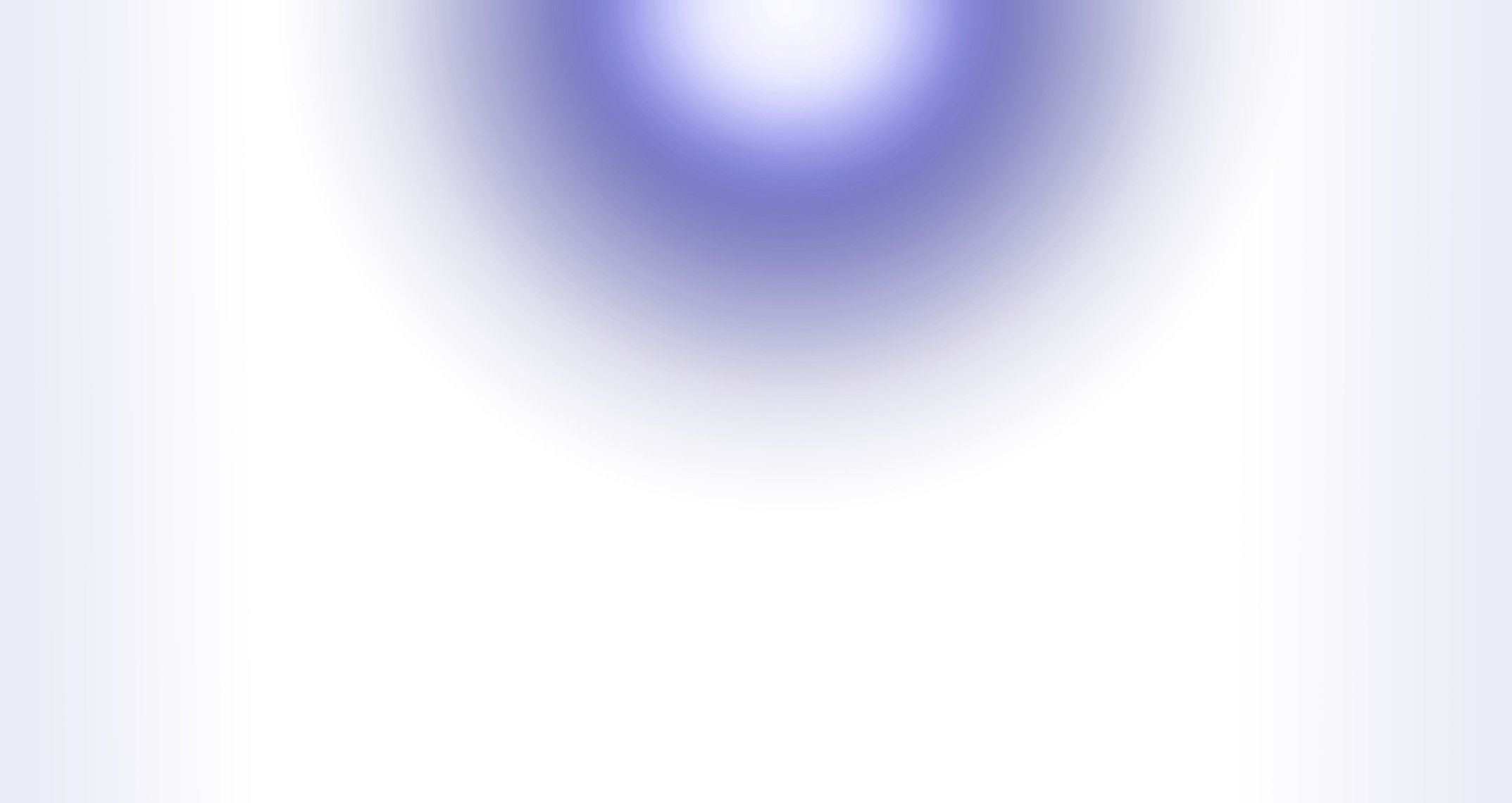
blog
FAQ

Visit my Substack: Hive Being
Visit my Substack: Hive Being

Don’t let anyone tell you that real life is lacking in poetic interest. This is exactly what the poet is for: he has the mind and the imagination to find something of interest in everyday things. Real life supplies the motifs, the points that need to be said—the actual heart of the matter; but it is the poet’s job to fashion it all into a beautiful, animated whole. You are familiar with Fürnstein, the so-called “nature poet”? He has written a poem about growing hops, and you couldn’t imagine anything nicer. I have now asked him to write some poems celebrating the work of skilled artisans, in particular weavers, and I am quite sure he will succeed; he has lived among such people from an early age, he knows the subject inside out, and will be in full command of his material. That is the advantage of small works: you need only choose subjects that you know and have at your command. With a longer poetic work, however, this is not possible. There is no way around it: all the different threads that tie the whole thing together, and are woven into the design, have to be shown in accurate detail. Young people only have a one-sided view of things, whereas a longer work requires a multiplicity of viewpoints—and that’s where they come unstuck.—Goethe (Conversations with Eckermann)
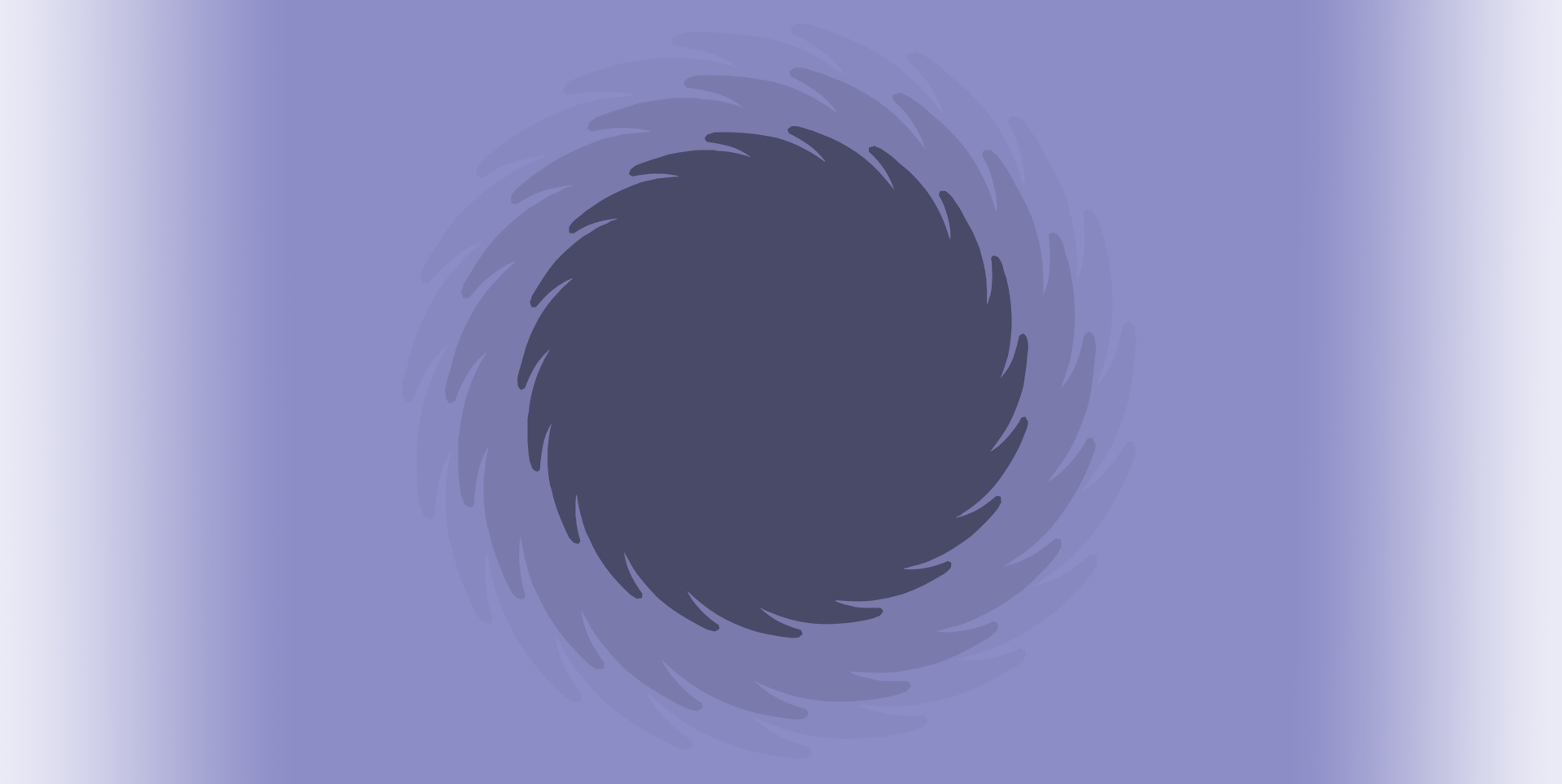
Featured Blog Posts
have appeared last night—
all those met along the way?
























